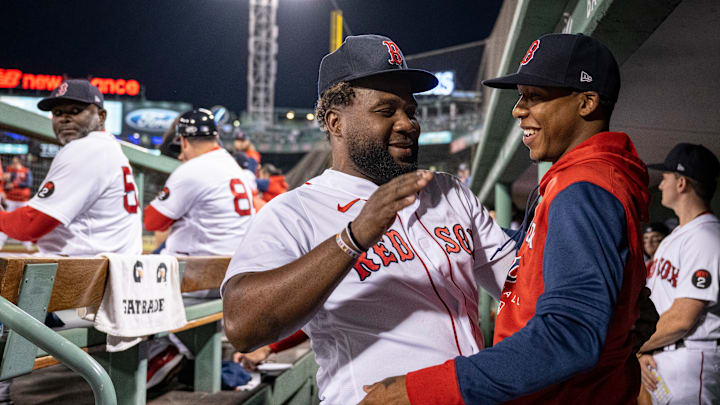The Boston Red Sox and Atlanta Braves have a connection that steps back in time since the Braves were a Boston team, even once called the Red Sox or Red Stockings. If the Braves had more patience, the great Braves teams of the 1950s would have been in Boston. Now the Braves offer an idea to the Red Sox on contracts, and it is a model the Red Sox management needs to take seriously.
The Braves are locking up young players of promise to long-term contracts, including signing two rookies last season - pitcher Spencer Strider and outfielder Michael Harris II. For Spencer, the deal is seven years for $75 million plus; for Harris, the same money is spread over eight years. They were not alone in this signing philosophy.
Austin Riley, Ronald Acuña Jr., Ozzie Albies, Sean Murphy, and free agent Matt Olsen are among those on long-term deals with the bulk of a pre-emptive buyout of pre-arbitration, arbitration, and free agent years. I probably missed a few players with the Braves' aggressive signing philosophy, but you've got the idea.
The Red Sox have not been remiss, but the only contract following the Braves' method is that of Garrett Whitlock, who signed a 4/18.75 M extension. With young players on the way, it may be opportune for some fiscal adventurism.
There is a risk/reward factor since anything can physically happen, which the Red Sox are all too familiar with - think Chris Sale. With the contracts, you may struggle with a luxury tax situation as the Braves are dealing with. Continuing down the path of negativity is the possibility a player gets lazy once he has a guaranteed deal.
Is it time for the Red Sox to lock up young players?
So much for the negativity since there are undoubtedly other negative concerns, but we will focus on the positive. For starters, this strategy gives you a more profound idea of cost control. This is security for the player and the organization, but you have the most essential aspect, which is the curse of whether he will sign or not—the removal of the Xander Bogaerts drama.
The tax threshold continues to spiral upwards, and with the possible gambling stream revenue, it will continue. Contracts will continue to escalate, and what appears as overspending could be viewed as "cheap money" a few years down the road.
Arbitration is a funnel of negativity as management attempts to minimize a player's contribution to influence the arbitration. Conversely, the player's representatives will picture their client as a combination of Willie Mays and Ty Cobb. That is why so many cases are resolved before going before an arbitrator, avoiding mutual hostility. So do the Red Sox go into the early signing game?
Bryan Bello has barely one year of service time and is under team control until after the 2029 season. The 24-year-old righty is a rare successful pitching prospect of the Boston farm system. Is Bello as good as Strider? They are probably close enough to offer a similar contract.
Has Jarren Duran turned the corner? Duran is perfect for the rapidly developing speed game, and it is showing. Duran's career of 29.9 K% is somewhat alarming, but Duran's .402 BABIP so far this season is special. Even Duran's shaky defense has improved and with Adam Duvall as a possible one and done, Duran could be the CF for the rest of the decade.
If Bloom is still around, signing Duran may be an excellent off-season project for Bloom. Alex Verdugo has made overtures of signing an extension so that Boston may have a contract quandary. For Duran, I would look for a contract south of Andrew Benintendi (5/75M), who took full advantage of free agency.
Tanner Houck, Kutter Crawford, and Josh Winckowski all present extension options. Houck has shown improvement as a starter and, depending on injury recovery, could be offered a modified version of Whitlock's deal.
Crawford and Winckowski are somewhat surprising, and shorter extensions in the three-year range and likely team/player option loaded are possible. I suspect Boston will hold on both.
Boston's approach with Triston Casas may be a wait-a-season as it may be with Crawford and Winckowski. Casas is starting to revive after a dreadful and embarrassing start with the glove and bat, but power sells, and power gets paid.
Early signings message players on the way up that the big money is available if they show the promise of all those scouting reports. Marcelo Mayer could get a Wander Franco deal (11/182 M) if Mayer presents himself as the real deal. As the commercial says: "pay me now or pay me later." Based on history it is best to pay now.
